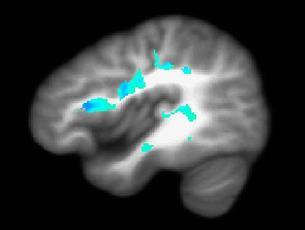 He’s not asking you out. He’s not calling you. He’s not marrying you. He’s disappeared on you. While many women might rationalize this behavior and hold out hope for a fairytale ending, writers from the hit show “Sex and the City” will respond with the six little words that will grace the silver screen this week.
He’s not asking you out. He’s not calling you. He’s not marrying you. He’s disappeared on you. While many women might rationalize this behavior and hold out hope for a fairytale ending, writers from the hit show “Sex and the City” will respond with the six little words that will grace the silver screen this week.
February 2009
  Benedict Carey has written a great article in The New York Times that explores the commonly held psycholocical wisdom of crying as a healthy catharsis.
 Benedict Carey has written a great article in The New York Times that explores the commonly held psycholocical wisdom of crying as a healthy catharsis.
Â
Link to read The Muddled Tracks of All Those Tears
Having a “good cry” can and usually does allow people to recover some mental balance after a loss. But not always and not for everyone, argues a review article in the current issue of the journal Current Directions in Psychological Science. Placing such high expectation on a tearful breakdown most likely sets some people up for emotional confusion afterward.
Â
Source: The New York Times

Image: iStockphoto
More and more people are living longer, but living to extreme old age is unusual and tends to run in some families. A new study at Columbia University Medical Center, sponsored by the National Institutes on Aging, aims to learn more about the secrets to a long healthy life. Investigators are seeking long-lived families to help investigate this important question.
The study is looking for families with two or more healthy brothers and sisters who are at least 79-years-old and in good health and can be interviewed in person (interviews can take place either at Columbia or at the participant’s home). [continue reading…]

Yellow areas in the brain of a heavy marijuana user show brain regions with the most significant abnormalities. These areas correspond with those under development during normal adolescent years.
Adolescents and young adults who are heavy users of marijuana are more likely than non-users to have disrupted brain development, according to a new study. Pediatric researchers found abnormalities in areas of the brain that interconnect brain regions involved in memory, attention, decision-making, language and executive functioning skills. The findings are of particular concern because adolescence is a crucial period for brain development and maturation. [continue reading…]
